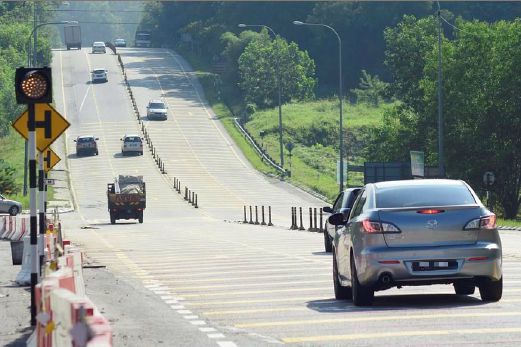Now Reading: Malaysian Government Planning Rubberized Roads
-
01
Malaysian Government Planning Rubberized Roads
Malaysian Government Planning Rubberized Roads

When the economy of a country is going through a hard time, it is the duty of the government to do something to save it. This is just what the Malaysian government is trying to do. Rubber prices in the country are falling and to help mitigate it, the government is planning to rubberize roads in the country. Not only will this save domestic rubber producers, this move will also see motorists in the country enjoying more resilient highways.
As reported by the New Straits Times, Datuk Seri Mah Siew Keong, who happens to be the country’s Plantation Industries and Commodities Minister, the prime minister has given out order to maintain good rubber prices as well as sustain rubber and palm oil demand. The prime minister hopes to achieve this by collaborating closely with the International Trade and Industry Ministry of Malaysia.
It has also been disclosed that the Malaysian government is planning to purchase raw rubber materials straight away from small rubber producers existent in the country. Based on the data gathered, there are approximately 410,000 of them in the country. It is said that the country may see rubber demand increase by about 10 percent this way.
However, before the rubber can be used to pave roads in the country, it will have to be mixed with asphalt first so it may take some time for the idea to be actually implemented. Furthermore, the government is still considering which roads exactly in the country should be rubberized. The first targets seem to be major highway sections and small towns.
Although this move by the Malaysian government will benefit domestic rubber producers, there is a downside. It is about 16 percent more expensive to produce rubberized asphalt than traditional asphalt. Nonetheless, rubberized asphalt is more durable, which should lead to less maintenance. So, in the long run, it may incur less fees compared to traditional asphalt.
Stay Informed With the Latest & Most Important News
Previous Post
Next Post
Previous Post
Next Post
-
 01Polestar Boss Says It’s Time To Outrun BMW M And Mercedes-AMG
01Polestar Boss Says It’s Time To Outrun BMW M And Mercedes-AMG -
 02Spy Shots: 2027 Mitsubishi Pajero Spotted in Testing Ahead of Possible U.S. Return
02Spy Shots: 2027 Mitsubishi Pajero Spotted in Testing Ahead of Possible U.S. Return -
 032026 Toyota Hilux EV: A Powerful Truck with Silent Torque
032026 Toyota Hilux EV: A Powerful Truck with Silent Torque -
 04Spy Photos: VW ID. Polo GTI Goes Electric with 223 HP and 280 Miles of Range
04Spy Photos: VW ID. Polo GTI Goes Electric with 223 HP and 280 Miles of Range -
![2027 Mercedes-Benz S-Class Debuts with V8 Engine [Photo Gallery]](https://speedlux.com/wp-content/uploads/2026/01/2027-Mercedes-Benz-S-Class-33-155x125.jpg) 052027 Mercedes-Benz S-Class Debuts with V8 Engine [Photo Gallery]
052027 Mercedes-Benz S-Class Debuts with V8 Engine [Photo Gallery] -
 06The Controversial Ford Voodoo V8 That Was Killed Off Too Early
06The Controversial Ford Voodoo V8 That Was Killed Off Too Early -
 07Hyundai Palisade’s Breakout Year Shows How Quickly the Market Can Turn
07Hyundai Palisade’s Breakout Year Shows How Quickly the Market Can Turn


![2027 Mercedes-Benz S-Class Debuts with V8 Engine [Photo Gallery]](https://speedlux.com/wp-content/uploads/2026/01/2027-Mercedes-Benz-S-Class-33-700x394.jpg)









































